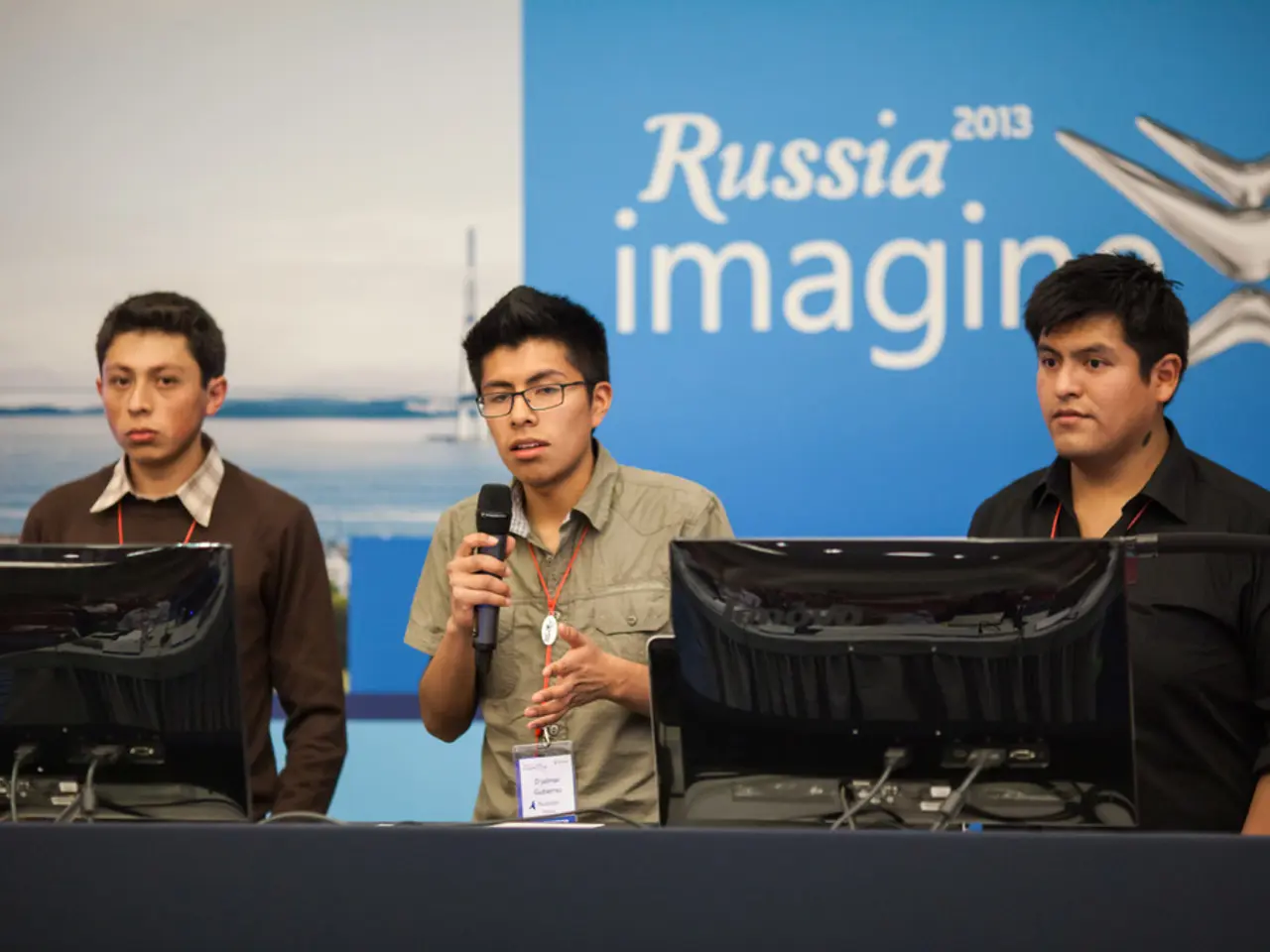Nvidia announces the resumption of sales for essential AI processor in China
In a significant development, Nvidia has announced its plans to restart sales of its H20 artificial intelligence chip to China, following approval from the U.S. government. The tech giant is currently applying for necessary licenses and anticipates receiving them soon, with deliveries set to commence shortly thereafter [1][2][4].
The H20 chip, known for its superior memory bandwidth and Nvidia's widely-adopted software ecosystem, has been highly sought after in the Chinese market [1][3]. The resumption of sales is a welcome move for Chinese companies, despite the growing competition from domestic players like Huawei.
Simultaneously, Nvidia has unveiled a new AI chip, the 'RTX Pro', specifically designed for the Chinese market. This chip is compliant with local regulations and is intended for digital manufacturing applications such as smart factories and logistics [1]. Although details about the 'RTX Pro' are scarce, Nvidia's strategic move aims to cater to the regulatory requirements while meeting the needs of Chinese enterprises and cloud providers [1][3].
While the H20 chip remains the company's most powerful legally available AI processor for China, Nvidia has also developed a modified H20 variant with reduced capabilities to align with U.S. export restrictions [3]. This strategic compliance allows Nvidia to re-enter the Chinese market strongly, competing against local alternatives like Huawei's Ascend series [3].
It is worth noting that the H20 chip was effectively banned by Washington in April, forcing Nvidia to write off $5.5 billion in inventories and walk away from $15 billion in potential sales [5]. The U.S. government's concerns revolved around the potential use of AI chips in military applications.
In a recent development, a bipartisan pair of senators sent a letter to Nvidia CEO Jensen Huang, urging him to refrain from meeting companies that are working with military or intelligence bodies, as well as entities named on the United States' restricted export list [6]. Huang has consistently highlighted China as a critical market for Nvidia's growth [7].
Nvidia's Chinese market visit is its second since April, underscoring the company's commitment to the region due to its size, dynamism, and high innovation [8]. The U.S. government has assured Nvidia that licenses will be granted to resume sales to China [2].
As Nvidia navigates the complexities of the Chinese market, it continues to emphasize the importance of innovation and compliance, positioning itself as a key player in the global AI chip market.
The resumption of sales for Nvidia's H20 artificial intelligence chip, appreciated in the Chinese market for its superior memory bandwidth and integration with Nvidia's software ecosystem, follows approval from the U.S. government [1][2][4]. Simultaneously, Nvidia introduces the RTX Pro AI chip, designed to cater to the regulatory requirements of the Chinese market, specifically for digital manufacturing applications [1]. These strategic moves demonstrate Nvidia's commitment to the Chinese market, a critical region for its growth, and its positioning as a key player in the global artificial intelligence and finance sector [1][3][7][8].




